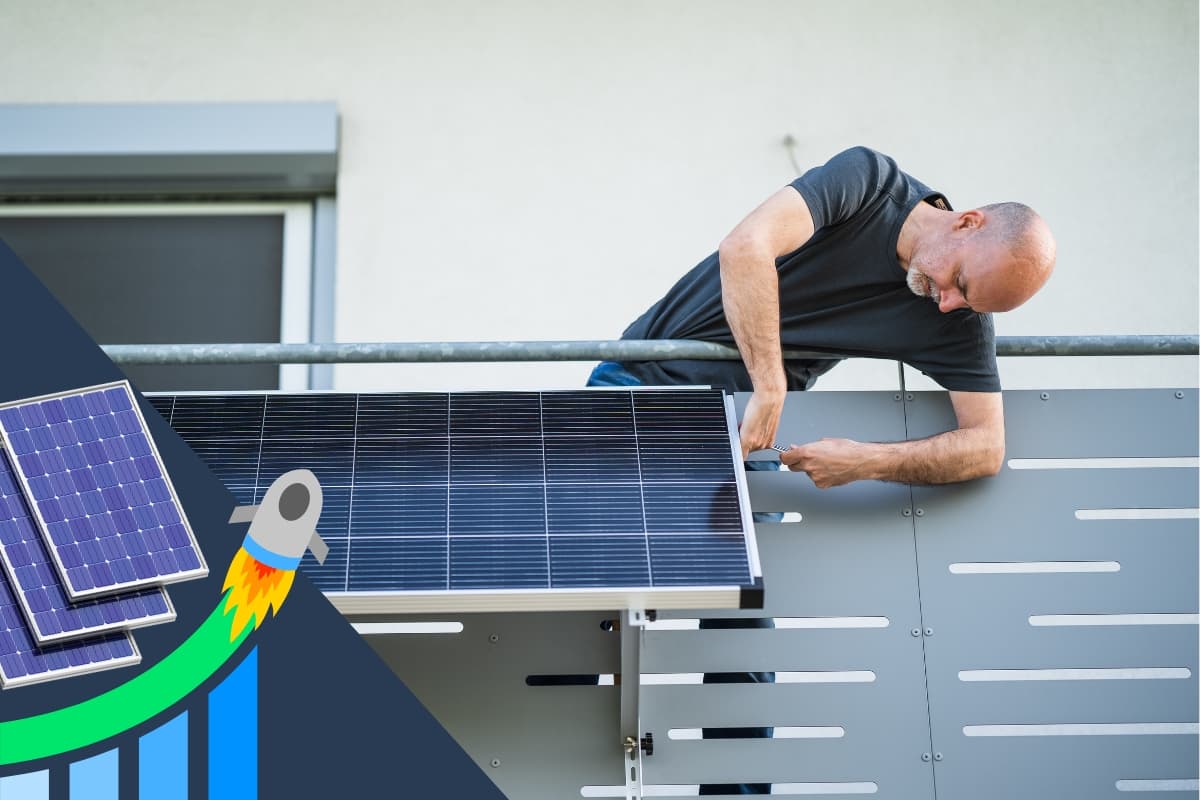Balconies with solar panels
The plug and play solar panels, also known as self-installable solar kits, are a simple and accessible solar energy solution that allows users to generate their own electricity – self-consumption – without the need for technical knowledge or a complex installation.
In Germany, more than 400,000 plug-in solar systems have been installed, most of them located directly on balconies. The ease of installation and simple administrative procedures are causing an unprecedented “boom”.
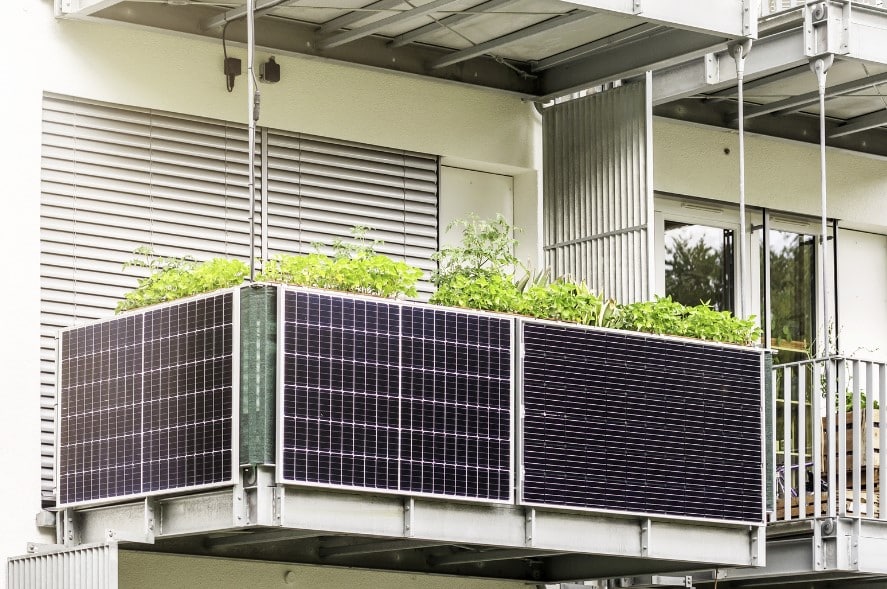
In the first quarter of 2024 alone, around 50,000 of these photovoltaic devices are already in operation as reported by the Federal Network Agency.
In the first quarter of 2024 alone, around 50,000 plug-in solar systems have been registered in Germany
This trend, driven mainly by economic benefits in the face of cheap energy, is transforming balconies into small power plants, democratizing access to renewable energy.
Let’s remember that the newly installed photovoltaic production in 2023 in Germany experienced an 85% increase compared to the previous year, more than a million new solar systems.
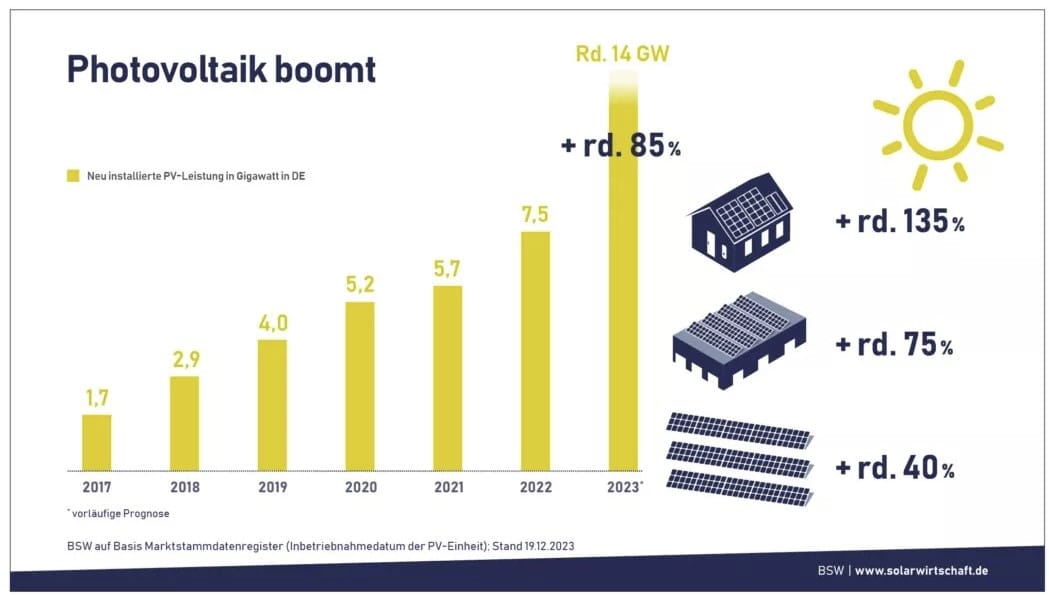
In fact, it exceeded the government’s expectations in 2023, which were 9GW. Germany added more than 1 GW per month. It was the first time that the annual installation in renewables of a European country exceeded the 10 GW mark.
It is estimated that Germany has around 200 MW of solar energy installed on balconies; compared to the 16 GW of installed capacity on residential roofs.
Plug-in solar systems usually consist of 1 or 2 standard photovoltaic modules and an inverter. Depending on the equipment, additional components can be added. Example:
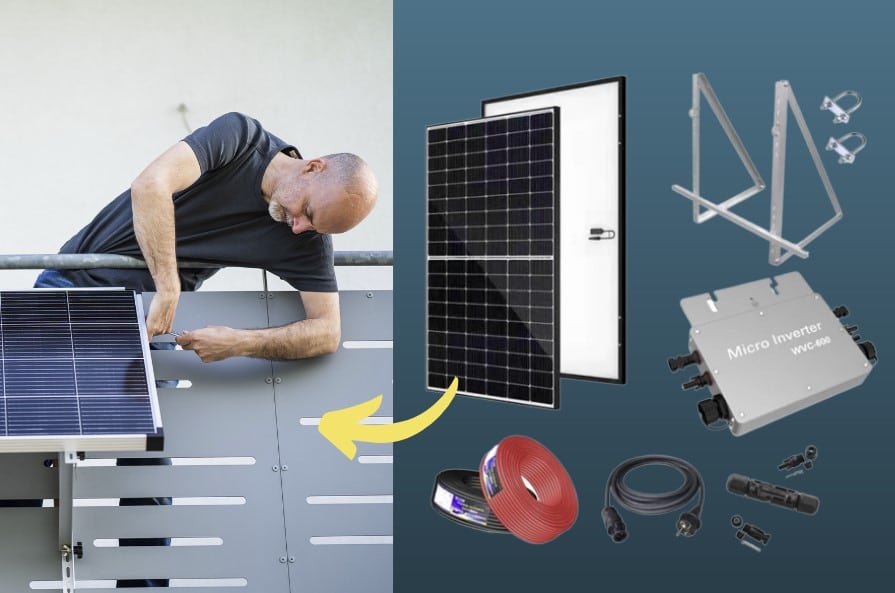
In Germany, all photovoltaic installations, including plug-in solar devices that you can hang on the balcony, must be registered with the Federal Network Agency.
Since April of this year, the installation procedures are more simplified and can add more power as reported by the Federal Network Agency:
- It will no longer be necessary to register with the network operator to install a balcony solar system.
- The commissioning will be faster, as there will be no need to wait for a possible meter change.
- The inverter power limit will be raised from 600 to 800 watts (AC).
- The power limit of the connected modules will be raised to 2,000 watts.
The solar balconies have become a popular self-consumption alternative to generate photovoltaic solar energy in urban environments. Their easy installation, low cost, and minimal maintenance, along with the increasing efficiency of solar panels, make them an attractive option.
In addition to these measures, other important points in renewable installations in Germany, which have been in place since early 2023, should be noted:
- First, that photovoltaic systems and battery storage are subject to a 0% sales tax rate. It also applies to plug-in solar devices.
- Secondly, plug-in solar devices are not considered construction products in the case of normal use. There is no building permit, but remember that they must be registered with the Federal Network Agency.
- And the subsidies, where plug-in solar panels on balconies can also access a subsidy depending on characteristics.
And if you’re thinking that all these measures to promote photovoltaic energy in Germany don’t convince you, we show you the latest chart of data offered by the Federal Network Agency indicating the expansion of solar radiation energy production in megawatts (MW) per year:
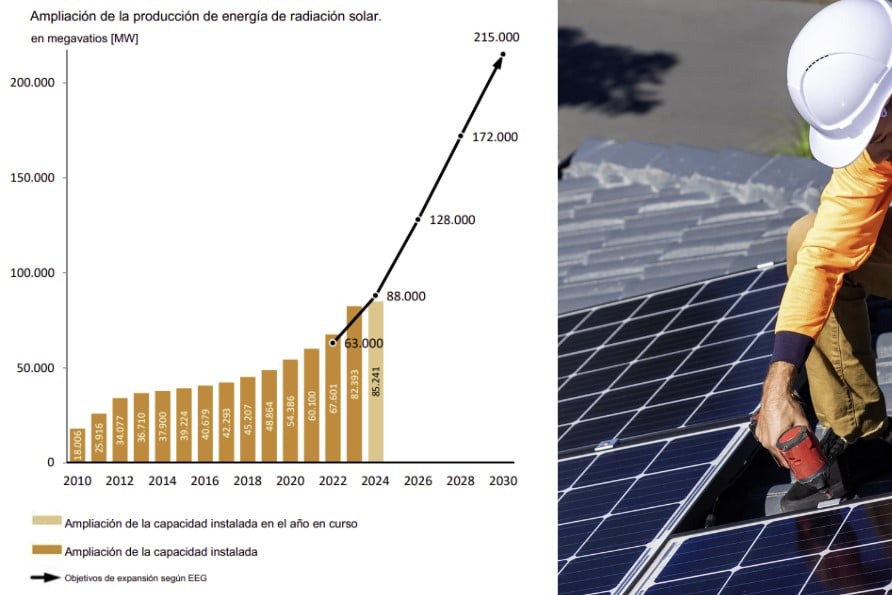
The prospects for the coming years directly break the chart. And not only for solar energy, the expansion of the power of onshore and offshore wind turbines are on the same line!
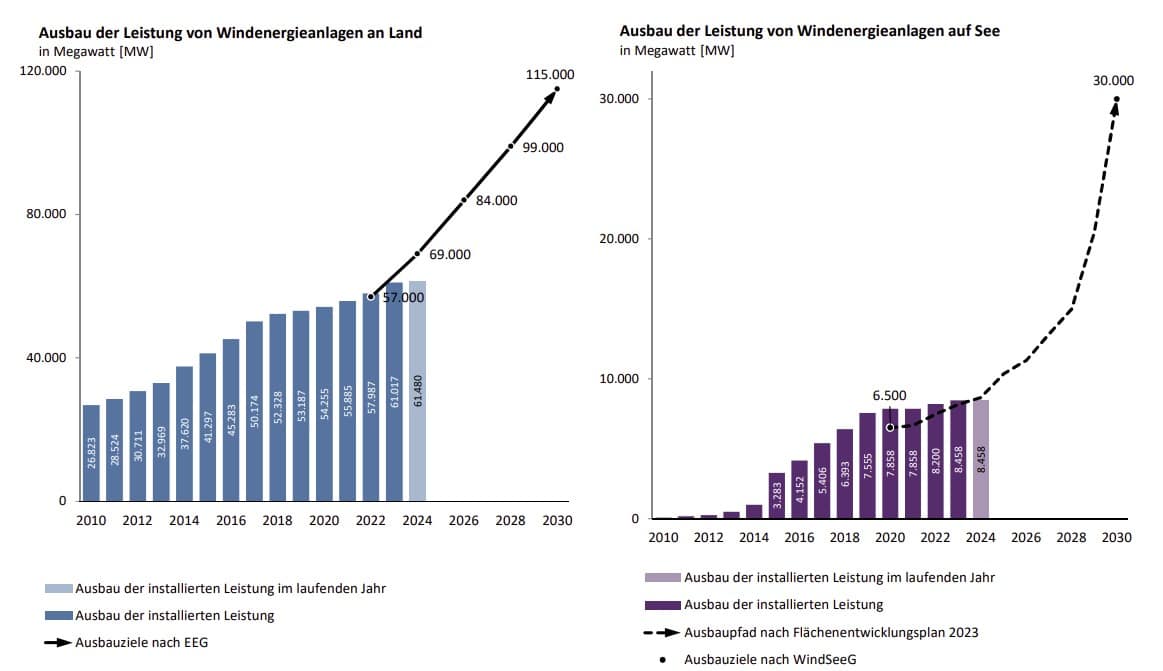
The trend of solar balconies is not only here to stay, but it is destined to grow. It is estimated that in the coming years, millions of households worldwide will join this energy revolution. We just need to know if the Spanish administration is preparing, because for now, as far as I remember… We are in a regulatory “limbo”!
If you liked the article, share it!
